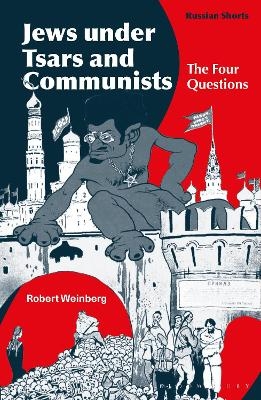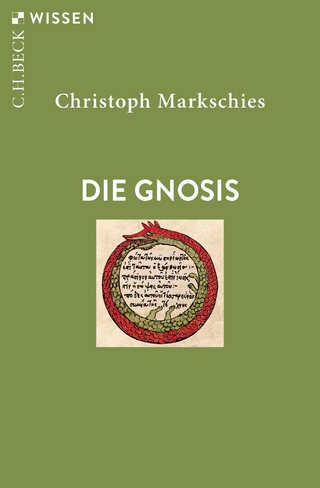
Jews under Tsars and Communists
The Four Questions
Seiten
2024
Bloomsbury Academic (Verlag)
978-1-350-12916-0 (ISBN)
Bloomsbury Academic (Verlag)
978-1-350-12916-0 (ISBN)
Tracing the evolving nature of popular and official beliefs about the purported nature of the Jews from the 18th century onwards, Russia and the Jewish Question explores how perceptions of Jews in late Imperial Russia and the Soviet Union shaped the regimes’ policies toward them. In so doing Robert Weinberg provides a fruitful lens through which to investigate the social, economic, political, and cultural developments of modern Russia.
Here, Weinberg reveals that the ‘Jewish Question’ – and, by extension anti-Semitism – emerged at the end of the 18th century when the partitions of Poland made hundreds of thousands of Jews subjects of the Russian crown. He skillfully argues the phrase itself implies the singular nature of Jews as a group of people whose religion, culture, and occupational make-up prevent them from fitting into predominantly Christian societies. The book then expounds how other characteristics were associated with the group over time: in particular, debates about rights of citizenship, the impact of industrialization, the emergence of the nation-state, and the proliferation of new political ideologies and movements contributed to the changing nature of the ‘Jewish Question’. Its content may have not remained static, but its purpose consistently questions whether or not Jews pose a threat to the stability and well-being of the societies in which they live and this, in a specifically Russian context, is what Weinberg examines so expertly.
Here, Weinberg reveals that the ‘Jewish Question’ – and, by extension anti-Semitism – emerged at the end of the 18th century when the partitions of Poland made hundreds of thousands of Jews subjects of the Russian crown. He skillfully argues the phrase itself implies the singular nature of Jews as a group of people whose religion, culture, and occupational make-up prevent them from fitting into predominantly Christian societies. The book then expounds how other characteristics were associated with the group over time: in particular, debates about rights of citizenship, the impact of industrialization, the emergence of the nation-state, and the proliferation of new political ideologies and movements contributed to the changing nature of the ‘Jewish Question’. Its content may have not remained static, but its purpose consistently questions whether or not Jews pose a threat to the stability and well-being of the societies in which they live and this, in a specifically Russian context, is what Weinberg examines so expertly.
Robert Weinberg is Professor of History and International Relations at Swarthmore College, USA. He is the author of Ritual Murder in Late Imperial Russia: The Trial of Mendel Beilis (2013) and the co-author, along with Laurie Bernstein, of The Russian Revolution: A History in Documents(2010). He is also the co-editor, with Eugene Avrutin and Jonathan Dekel-Chen, of Worlds of Ritual Murder: Culture, Politics, and Belief in Eastern Europe and Beyond (2017).
List of Illustations
1. Defining the Jewish Question in the Modern World
2. The Jewish Question in the Nineteenth Century
3. Pogroms, Politics, and Revolution
4. Communism and the Jewish Question
5. The Jewish Question in the Post-Soviet World
Index
| Erscheinungsdatum | 27.01.2024 |
|---|---|
| Reihe/Serie | Russian Shorts |
| Zusatzinfo | 20 bw illus |
| Verlagsort | London |
| Sprache | englisch |
| Maße | 129 x 198 mm |
| Themenwelt | Geisteswissenschaften ► Geschichte ► Regional- / Ländergeschichte |
| Geschichte ► Teilgebiete der Geschichte ► Religionsgeschichte | |
| Sozialwissenschaften ► Soziologie ► Spezielle Soziologien | |
| ISBN-10 | 1-350-12916-X / 135012916X |
| ISBN-13 | 978-1-350-12916-0 / 9781350129160 |
| Zustand | Neuware |
| Informationen gemäß Produktsicherheitsverordnung (GPSR) | |
| Haben Sie eine Frage zum Produkt? |
Mehr entdecken
aus dem Bereich
aus dem Bereich
Von den Anfängen bis zur Gegenwart
Buch | Hardcover (2022)
C.H.Beck (Verlag)
34,00 €
warum die Religionen erst im Mittelalter entstanden sind
Buch | Hardcover (2024)
C.H.Beck (Verlag)
38,00 €


